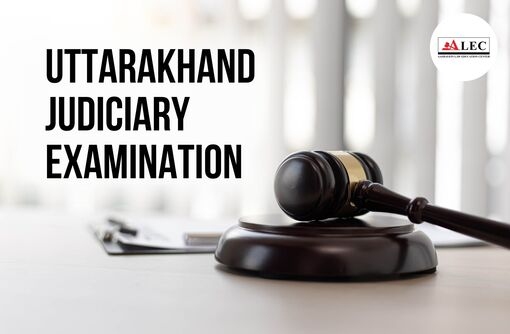Introduction
The Uttarakhand Judicial Services Examination 2024, commonly referred to as the Uttarakhand Civil Judge Junior Division (CJ JD) Exam, is a competitive examination conducted by the Uttarakhand Public Service Commission. This exam aims to recruit qualified candidates for the position of Civil Judge in the state of Uttarakhand.
Eligibility Criteria
To be eligible for the examination, candidates must meet the following criteria:
- Citizenship: Applicants must be citizens of India.
- Educational Qualification: A law degree from a recognized university in India is mandatory.
- Language Proficiency: Candidates should have a thorough understanding of Hindi in the Devanagari script and possess basic computer operation skills.
- Age Limit: The age of applicants should be below 35 years at the time of applying. However, there are provisions for age relaxation for candidates from reserved categories:
- Scheduled Caste/Scheduled Tribe: 5 years
- Other Backward Classes: 3 years
- Persons with Disabilities: 10 years
For more information, visit [ALEC Enquiry].
Preliminary Examination
The Preliminary Examination syllabus includes a duration of 3 hours, with the following subjects:
- General Knowledge (50 Marks):
- International Law
- Neutrality
- Recent Legislation
- Constitution of India, 1950
- Law and Development
- Current Legal Aspects
- Law (150 Marks):
- Transfer of Properties Act, 1882
- Principles of Hindu Law
- Principles of Muslim Law
- Indian Evidence Act, 1872
- Code of Criminal Procedure, 1973
- Indian Penal Code, 1860
- Code of Civil Procedure, 1908
For a deeper dive into the law, don't miss our must-visit pages: Latest Judgments and Blogs!
Mains Examination
The Mains Examination consists of multiple papers:
- Paper I: Current Affairs (150 Marks)
- Legal Sphere
- Jurisprudence
- International Law
- Neutrality
- Recent Legislation: Indian Constitutional Law and Developments
- Paper II: Language (100 Marks)
- Translation from English to Hindi (30 Marks)
- Translation from Hindi to English (30 Marks)
- Précis Writing in English (40 Marks)
- Paper III: Substantive Law (200 Marks)
- Indian Contract Act, 1872
- Partnership Act
- Law Concerning Easements and Torts
- Transfer of Property Act, 1882
- Principles of Equity: Law of Trust and Specific Relief
- Hindu Law
- Mohammedan Law
- Paper IV: Law of Evidence & Procedure (200 Marks)
- Indian Evidence Act, 1872
- Code of Criminal Procedure, 1973
- Code of Civil Procedure, 1908
- Principles of Pleading
- Framing of Charges and Issues
- Methods of Dealing with the Evidence of Witnesses
- Writing of Judgments
- Conduct of Cases
- Paper V: Land Revenue and Criminal Law (200 Marks)
- U.P. Zamindari Abolition and Land Reforms Act, 1950 (as applicable in Uttarakhand)
- Indian Penal Code, 1860
- Paper VI: Basic Knowledge of Computer Operation (100 Marks)
- Windows and Internet
- MS Word
- MS Access
- MS Excel
- MS PowerPoint
Interview
The Interview, or Viva-voce, carries 100 marks. The marks obtained in the interview will be added to the Mains exam score to calculate the aggregate marks. During the interview, candidates will be asked general questions not directly related to academic or legal topics. Candidates will also be assessed based on their awareness of current affairs and contemporary issues.
For more information, visit [ALEC Enquiry].
You can also download it using the link below for free
Uttarakhand Syllabus

